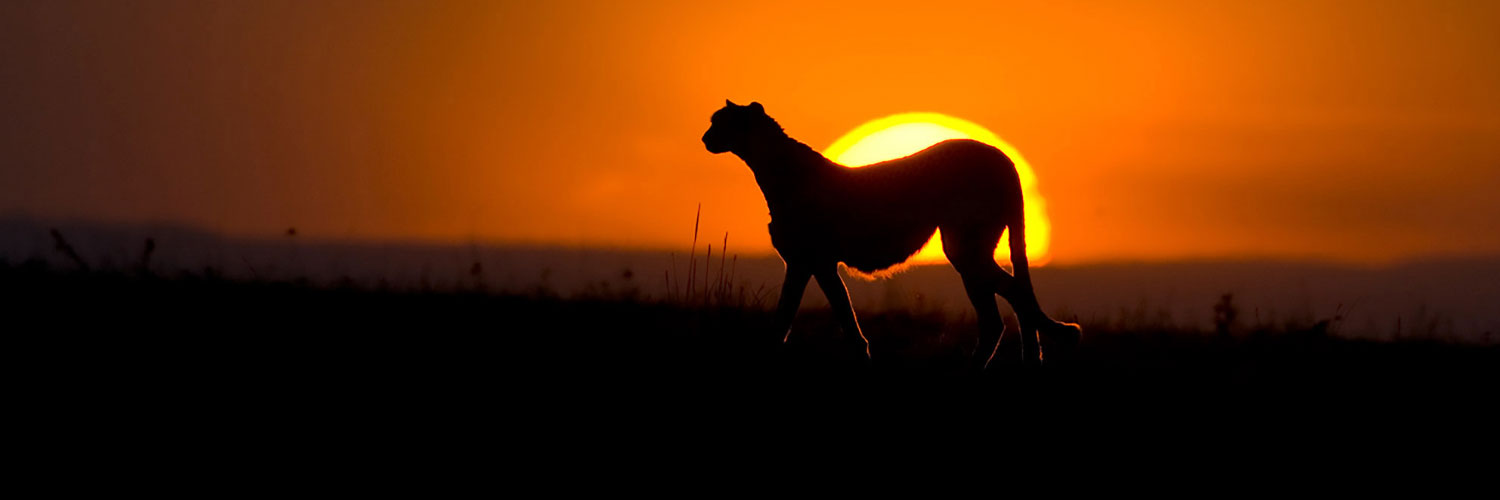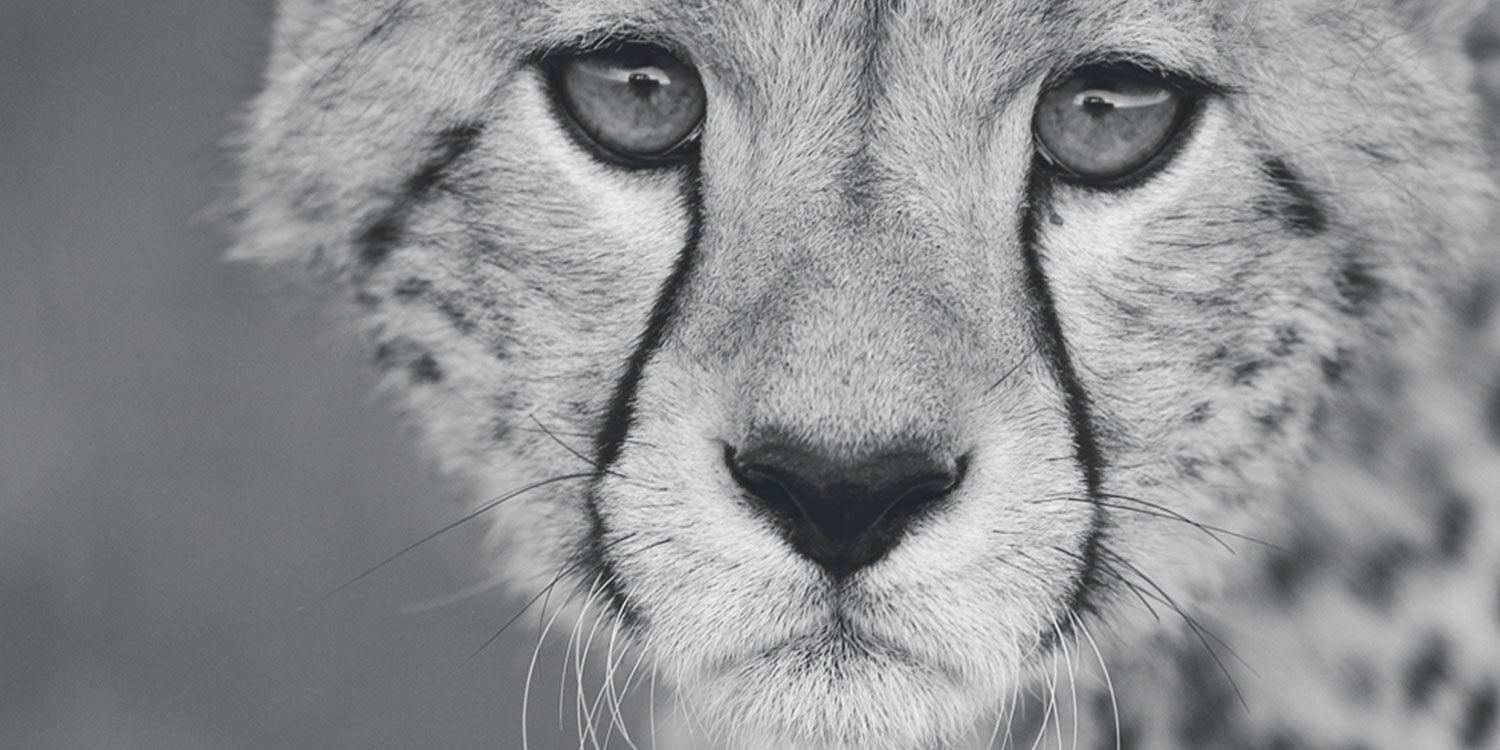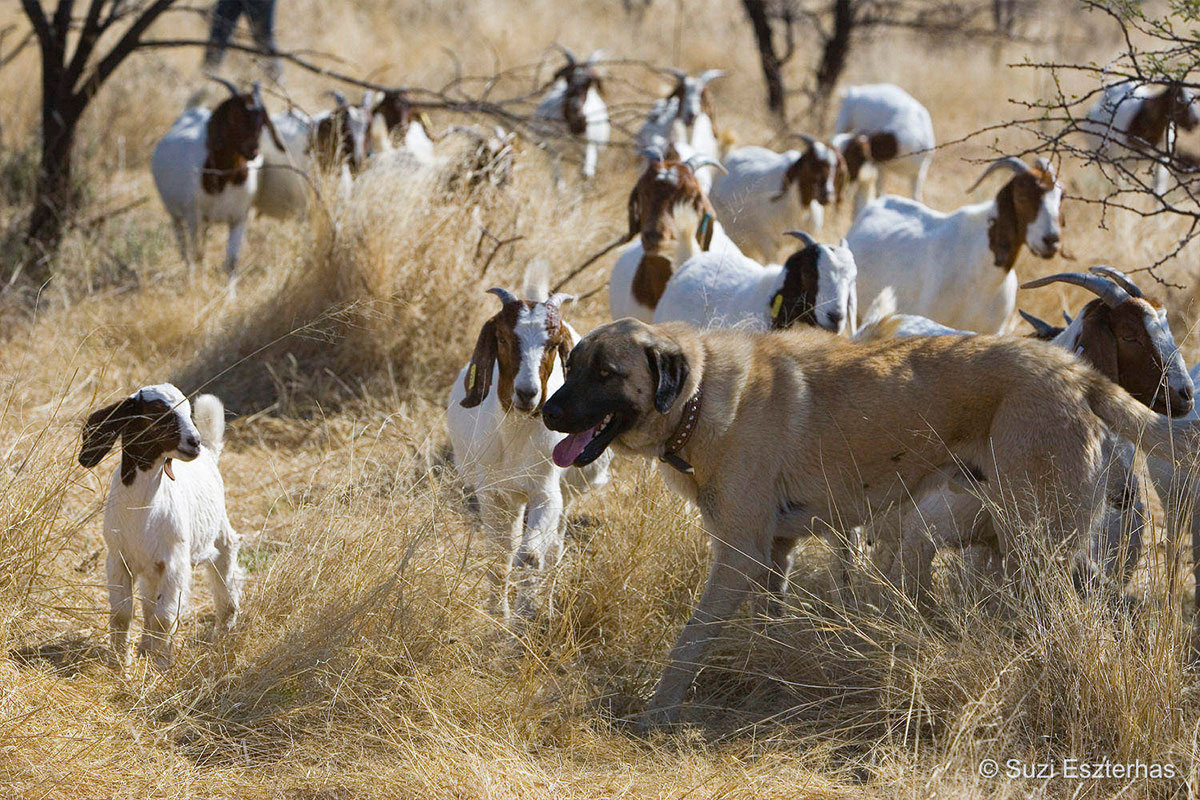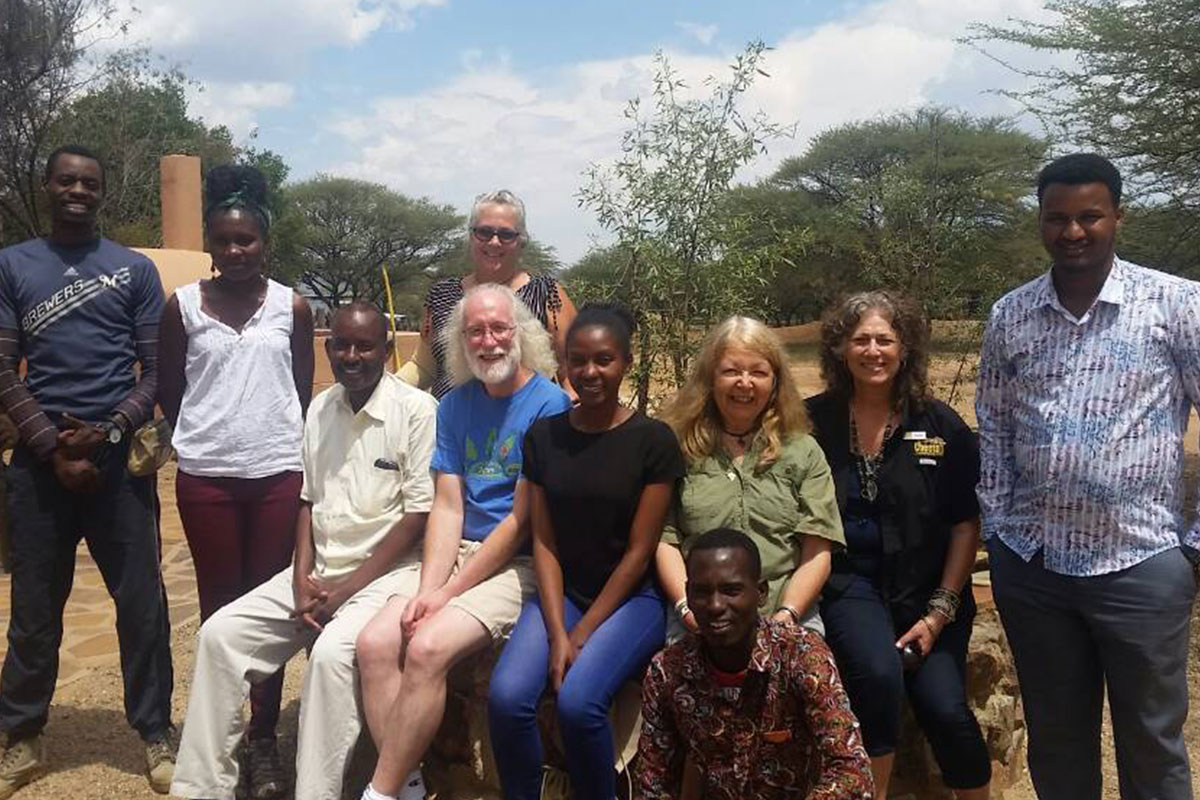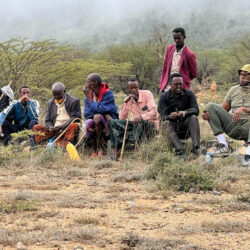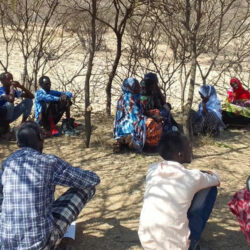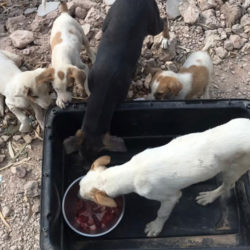Conservation
Cheetah Conservation Fund’s holistic conservation strategy is the key to success in saving the cheetah and its ecosystem. CCF works to develop best practices that benefit the entire ecosystem upon which the cheetah depends. CCF’s programs address the concerns for wildlife populations and the human communities that share the landscape.
CCF breeds Anatolian shepherd and Kangal dogs to become LGDs. Now, and for thousands of years, the breed is used to guard small livestock against wolves and bears in Turkey. LGDs are placed with Namibian farmers as puppies. The puppies bond with the herd or flock. As they grow up, their size and loud bark help to scare predators away.
Conservancies
CCF is a member of Namibia’s Conservancy movement. Conservancies are operated by groups of land owners committed to responsibly manage wildlife. Protecting Namibia’s wildlife treasures is proven to be economically beneficial to conservancies.
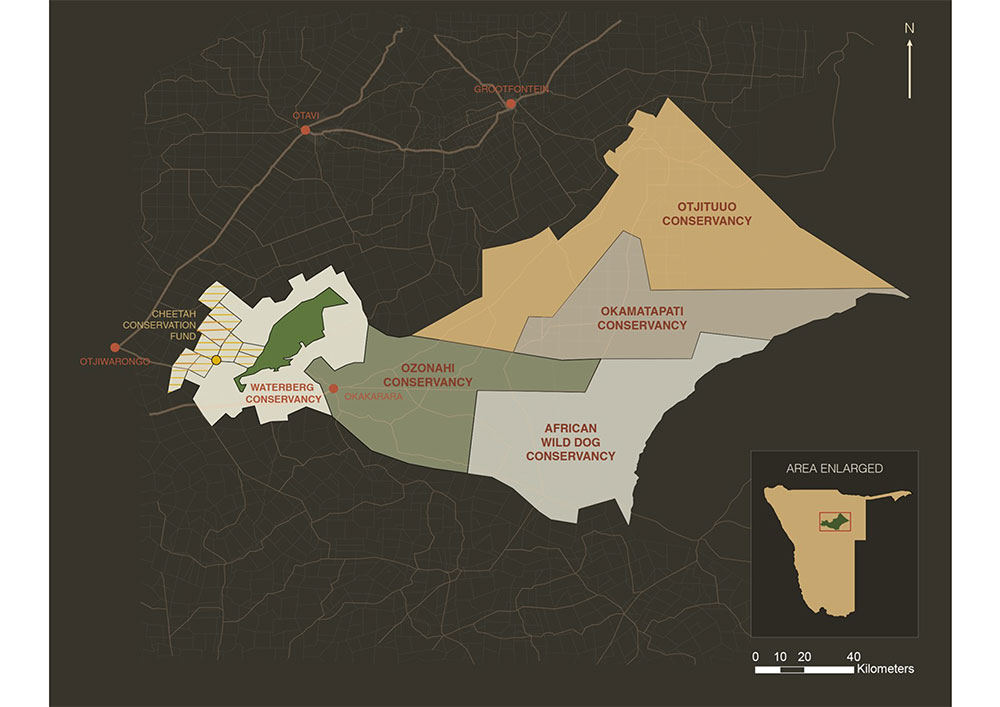
Because people in the conservancies “own” the wildlife, they are far more interested in protecting it.
In Namibia, areas governed by conservancies are more resistant to poachers. The Greater Waterberg Landscape is the conservancy and economic development area in which CCF participates. CCF works with communal farmers and people living around the Waterberg plateau as part of our holistic conservation strategy.
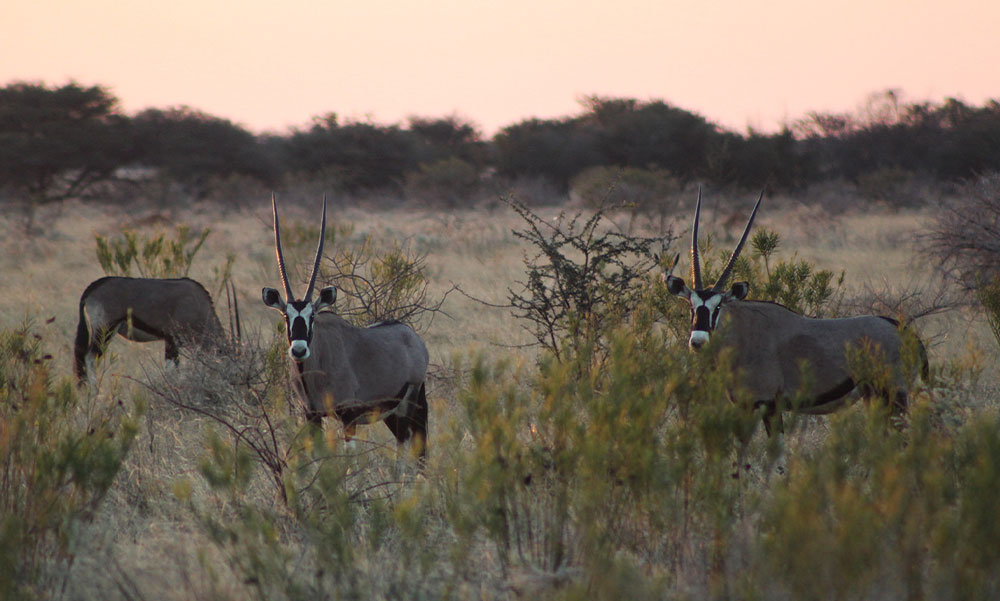
Biomass Technology Development and Bushblok
In 2001, the Cheetah Conservation Fund (CCF) and the United States Agency for International Development (USAID) collaborated to find a habitat improvement program that would be good for both the ecology and the economy.
CCF is working on a long-term research and development project to restore habitat while developing a renewable fuel source. Overgrown thorn bush is harvested and made into high-heat, low-emission, fuel logs for consumer use. As part of CCF’s programs, CCF Bush (PTY) Ltd. leads our Bushblok program. As the Bushblok program grows, CCF creates new biomass energy potential. As of 2017, CCF operates a biomass technology research and education program at the Biomass Technology Demonstration Centre.
Livelihood Development
The key to securing a future for the cheetah, is to secure the livelihoods of the people who share its habitat. Through livelihood development, CCF assists the communities living in cheetah-country. People learn the skills to expand their income at our Model Farm. CCF helps local artisans by promoting their jewelry craft and cultural art pieces in our on-site gift shop.
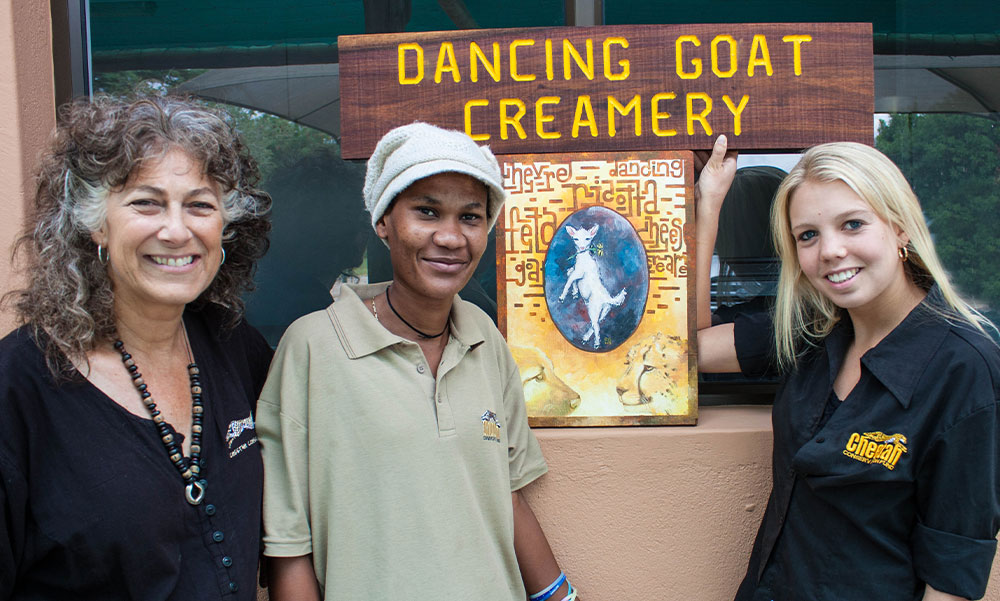
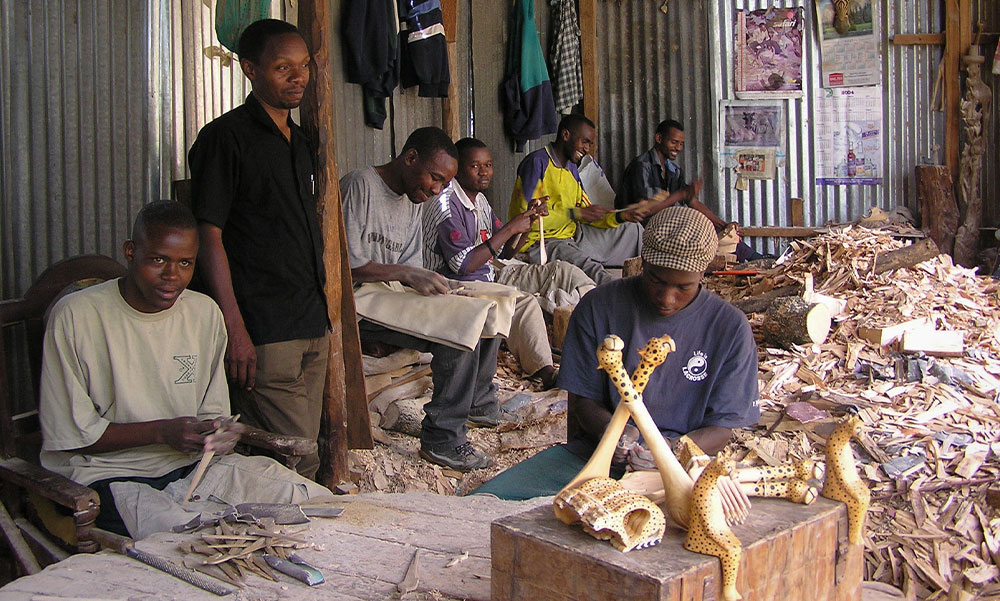
The Dancing Goat Creamery creates and sells dairy products made from CCF’s goat milk. The Creamery serves as an example for small stock farmers. Farmers learn how to expand their income by creating new and marketable products. CCF produces honey at our apiary, and grows grapes for wine making. CCF continues to develop new ways for communal farmers to boost their income.
In Kenya
CCF works with Action for Cheetahs in Kenya (ACK), to conduct research, conservation, and education programs in the region. Additionally, CCF works with Mara-Meru Cheetah Project to assist in studying the impact of tourism on cheetahs in the Masai Mara. CCF has partners within the tourism industry to distribute materials that promote responsible tourism. CCF provides student and teacher resource materials for use in schools throughout Kenya, and works in cooperation with Friends of Conservation, Kenya Wildlife Service, and Kenya Wildlife Clubs.
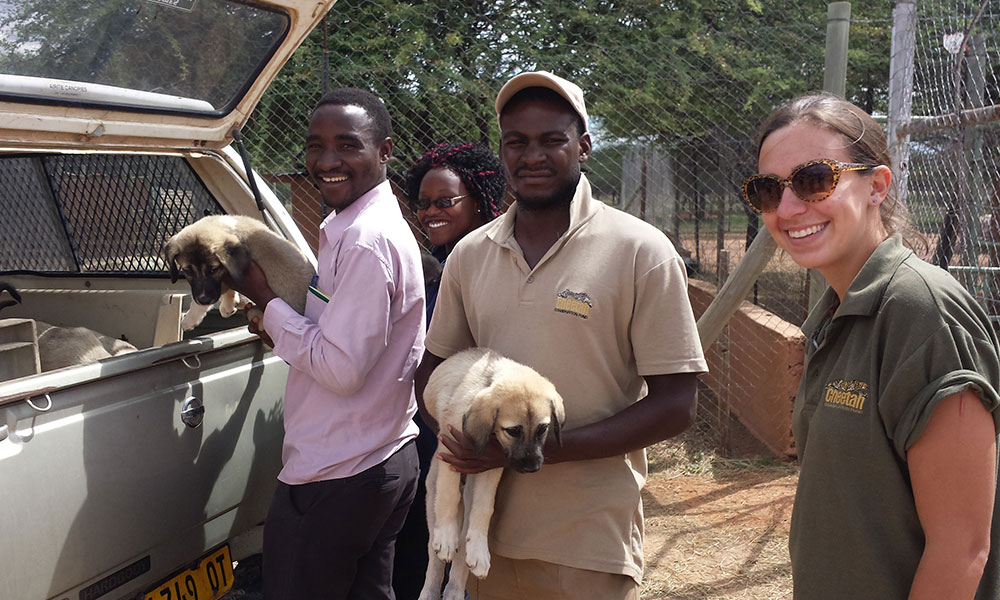
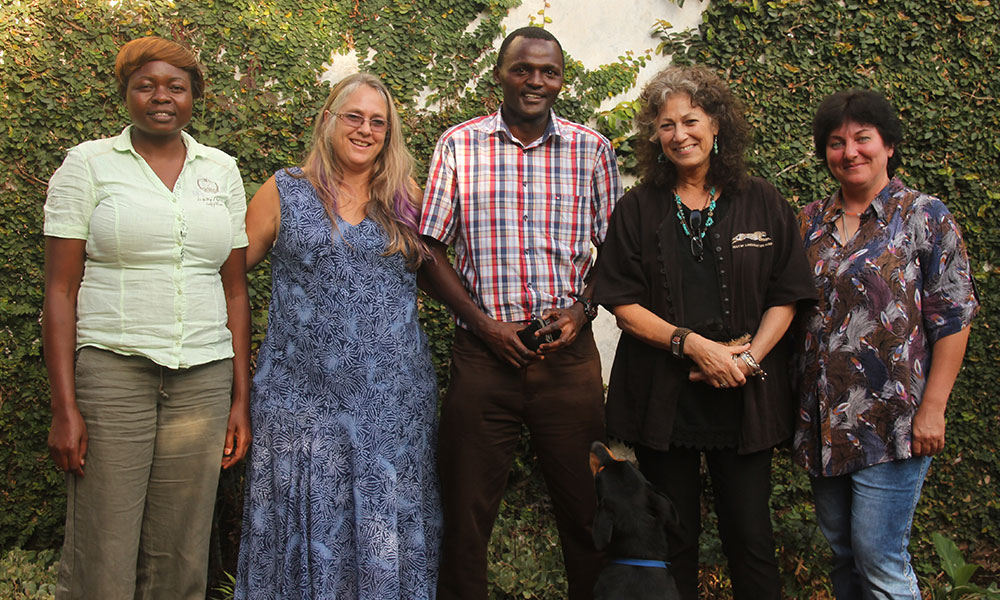
In Tanzania
CCF sent LGDs to Tanzania to help with human-wildlife conflict. Tanzania is the fourth country to use CCF’s LGDs. The dogs were sent to the Ruaha Carnivore Project (RCP) run by Dr. Amy Dickman. RCP is part of Oxford University’s Wildlife Conservation Research Unit (WildCRU), where CCF Founder and Executive Director Dr. Marker conducted her doctoral research. Goats from neighboring farms were brought to a specially prepared kraal in the RCP research area to begin training with the puppies. The LGD efforts are the first known attempt to use specialized guarding dogs to help protect livestock in Tanzania.
In Botswana
The cheetah population in Botswana may be the second largest free-ranging population. A large percentage of the cheetahs are found outside of protected areas. Cheetah Conservation Botswana (CCB) uses CCF as a model in the development of their programs. CCF trained the CCB team in handling cheetahs, and helped to develop survey and educational materials for the farming community of Botswana.
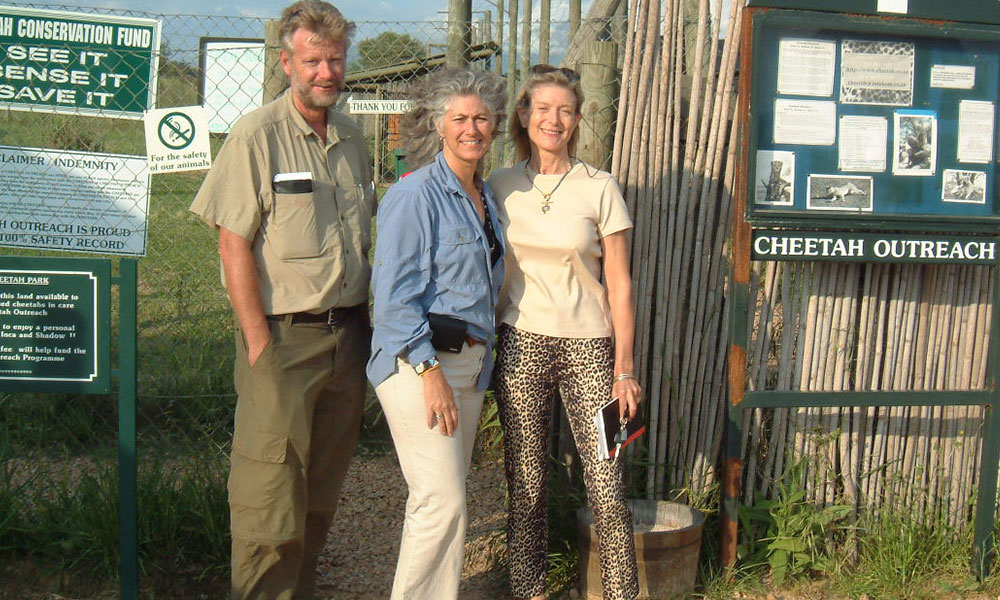
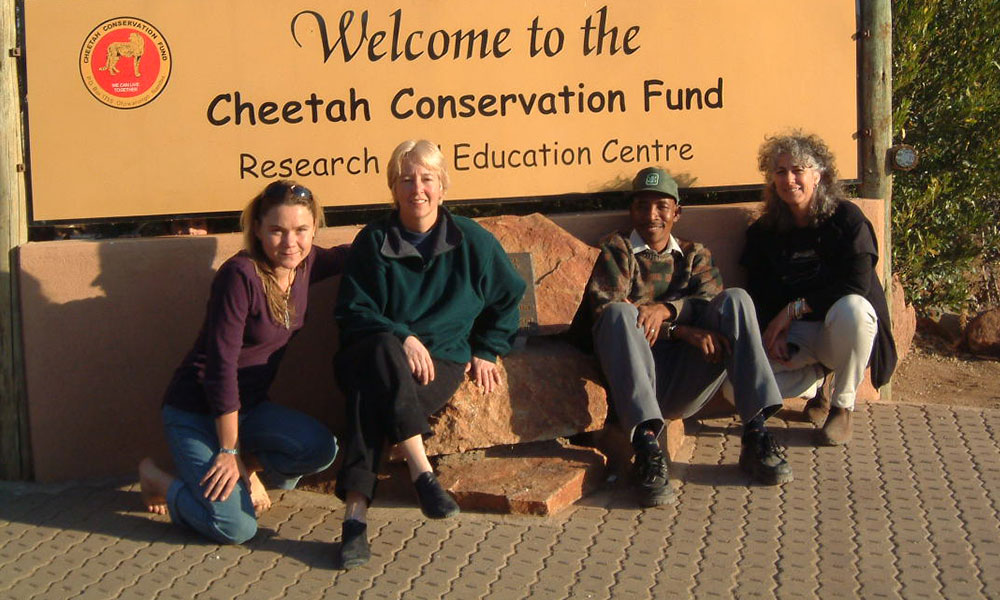
In South Africa
Fellow conservation organization in South Africa Cheetah Outreach keeps resident cheetahs as educational ambassadors. The ambassadors work with the public to illustrate the problems facing the cheetah. Cheetah Outreach uses CCF’s Namibian education model, and utilizes a school curriculum with the Western Cape Education Department. CCF works with the National Cheetah Monitoring Program and the DeWildt Cheetah Research Center.
In Iran and India
The United Nations Development Program (UNDP) supports Asiatic cheetah conservation efforts through a grant entitled “Conservation of the Asiatic Cheetah, its Natural Habitat and Associated Biota”. CCF supports Iranian conservation to save the last remaining population of Asiatic cheetahs. Dr. Laurie Marker visited Iran multiple times to assist on the project. CCF has a permit to work in Iran thus allowing closer collaboration.
Additionally, CCF works in an advisory capacity with the Wildlife Trust of India and India’s authorities. Discussions and strategies are focused on re-introducing cheetahs in India.
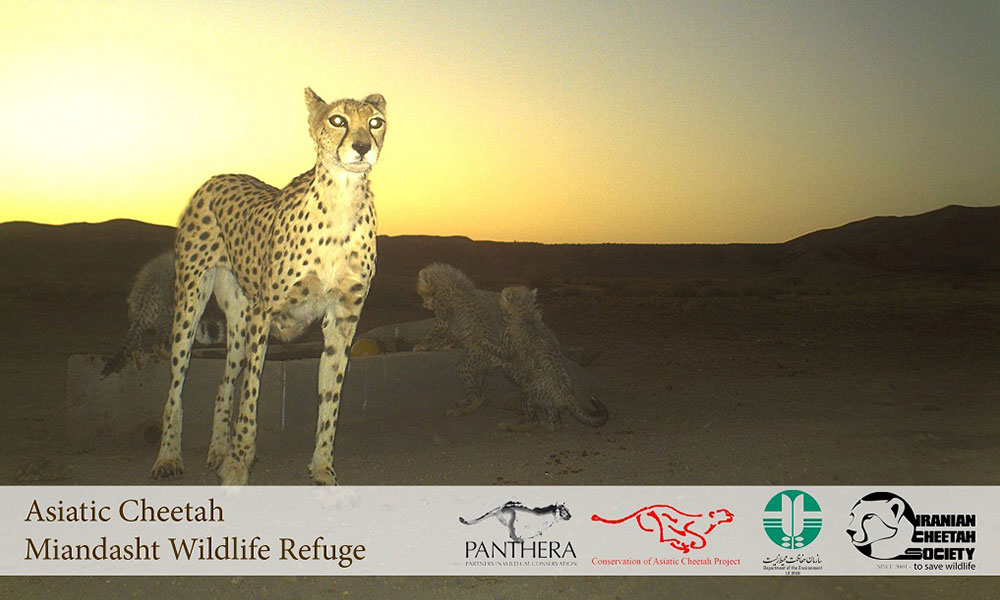
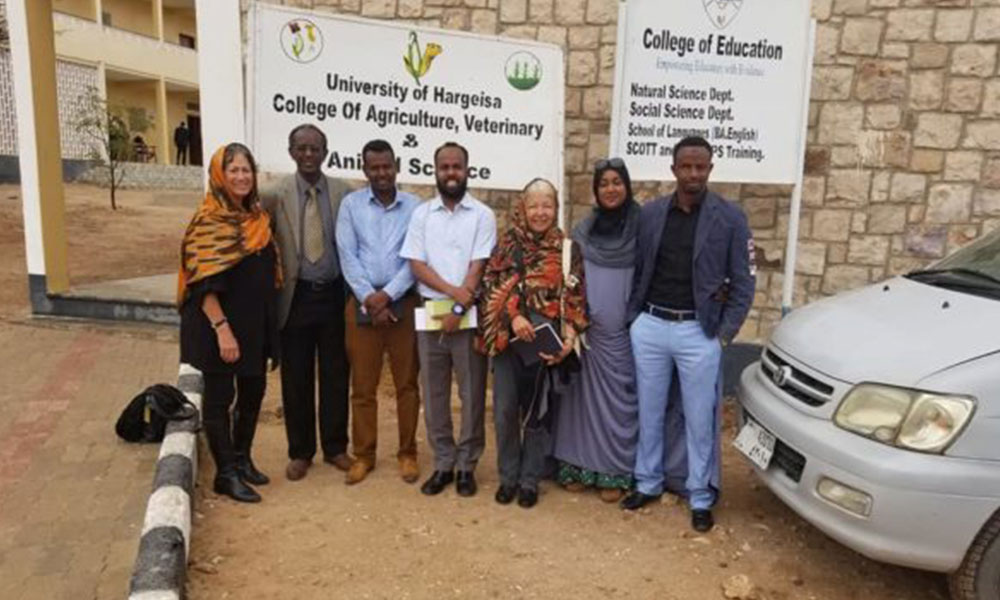
In Somaliland
CCF works directly in Somaliland. CCF supports the seizure of cheetahs destined for the illegal pet market. CCF’s veterinary team oversees the care for confiscated cheetahs at our Cheetah Safe House. CCF collaborates with the Ministry of Environment and Rural Development, international NGOs and the College of Agriculture, Veterinary and Animal Science at the University of Hargesia.
In North and West Africa
Dr. Laurie Marker is a member of projects in North and West Africa. CCF is part of a group to look at the needs required to save the Sahel cheetah. In Algeria, CCF works in cooperation with a French Zoological Park, the Paris Museum of Natural History, and the Cat Specialist Group.
Collaborative Conservation Partners
CCF has reciprocal relationships with other conservation organizations to develop and expand conservation efforts across the cheetah’s range.
- Action for Cheetahs in Kenya
- Website
- AZA SAFE: Saving Animals From Extinction
- Website
- Cheetah Conservation Botswana (CCB)
- Website
- Smithsonian Institute - Smithsonian Conservation Biology Institute (SCBI)
- Website
- Cheetah Outreach
- Website
- Deutsche Gesellschaft für Internationale Zusammenarbeit (GIZ) GmbH
- Website
- Range Wide Conservation Project for Cheetah and African Wild Dog (RWCP)
- Website
- International Fund for Animal Welfare (IFAW)
- Website
- Iranian Cheetah Society
- Website
- IUCN Redlist of Threatened Species
- Website
- Mara-Meru Cheetah Project
- Website
- Painted Dog Research Trust
- Website
- Panthera
- Website
- TRAFFIC - The Wildlife Trade Monitoring Network
- Website
- Wildlife Conservation Network (WCN)
- Website
Related Reading
-
February 28, 2023
Future Farmers of Africa in Somaliland – Partnerships in Conservation -
November 19, 2021
One Health Initiative at CCF

